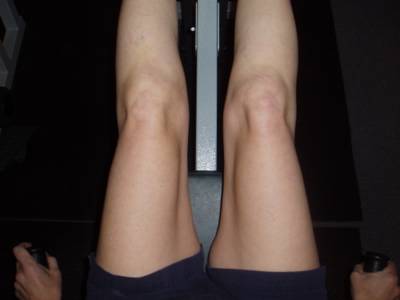Deflated
I'm still processing the visit I had on the 22nd with a neuromuscular specialist and the rehab doc that works with hhim. Their office had called my doc after she had been trying to reach him. They gave her a specific appointment for me to see both MDs. My husband rescheduled surgeries that he had planned for thhat day so he could come with me. We brought some photos that showed the asymmetry between my shoulders and the muscle imbalance between my upper traps and the shoulder girdle itself. These are not subtle, nonmedical people can easily spot the problem areas. In the past not a single neurologist has actually taken the gown down to look at my upper body as a block. Instead they "peek" here and there as they shift the gown, heaven forbid they see me in my bra. My husband is an OB and I care for a wide range of patients so we wonder what the big deal is about seeing me undressed. Same thing happened this time so I was glad we hhad the pics until the neuro admitted that he didn't see any asymmetry and the other said he saw it but it was just tthe normal asymmetry we all have. We pointed out to him that I didn't look like this last year and that it's progressing despite trying to rehab my shoulders for the past 7 months. In that time I've been doing the exercises ordered by the orthopedist who diagnosed my shoulder weakness and impingement syndrome. This rehab includes floor type work taught to me by my PT and weight lifting on my home gym. I was very faithful to this program, missing lifting days only when I was on vacation, yet I hadn't made any significant progress. If I was truly ok from a neuro perspective those muscles should have responded to the rehab. We also mentioned that the asymmetry was occurring only in areas where I had complained of weakness and the smaller side was always the weaker of the two. The rehab doc didn't think this coincidence represented anything. This logic, or lack of it, baffles us. The rehab doc had me try to rise from a chair using only one leg. This did demonstrate that the right hip extensors are not up to the task and I've been telling them that this side has been a problem from the outset. He said it just meant that I wasn't working this side hard enough. I was very active before this illnesss struck me (see previous blogs) so I'm puzzled as to why it got weak in the first place. Also, I've been walking for at least 30 min 6 days a week and doing leg presses, knee extensions, and hams for the past 9 months so why wasn't that helping the right side? I hosted my bridge group on the evening of the 22nd and everyone else, except the 71 yo with the knee replacement, was able to do thhe chair exercise with either leg. It's hard to explain why those less active than I can do physical tasks that I can't do if we are all equally intact.
Yet, these two docs think I'm ok. My partners are in a state of disbelief. They've seen me change and can't belief how my observations and concerns are brushed off. Neuros apparently do this because the EMGs have been normal. I tried to suggest that this would always be the case as I think thhis is a central nervous system problem and EMGs will be normal in such cases. A central problem would explain the autonomic neuropathy, the neuropathic pain that responds well to Neurontin and the muscle weakness. It would also explain the word searching and mis-speaking that I and my family have noticed in the past few months. I haven't mentioned thosee symptoms to this neuromuscular specialist because I feel that he would consider those problems to be further evidence of a psychosomatic disorder. So much for a therapeutic relationship built on trust and mutual respect. When I raised my suspicion that my problem originated in my brain it was brushed off because my MRI in Aug. 2003 was normal. Parkinson's is a central problem and I'm not aware of any MRI changes in that illness so his reasoning is a bit flawed. I sense he doesn't want to consider unusual diagnostic possibilities.
I see the POTS specialist, Dr. Blair Grubb, next week and I'll ask if he knows anyone who might be interested in my case. I'll bring a set of photos for him to review and pass on. My husband really thinks that Blair will further our quest but I have my doubts, having been rebuked so many timmes. One can only bang their head against the wall so many times.





